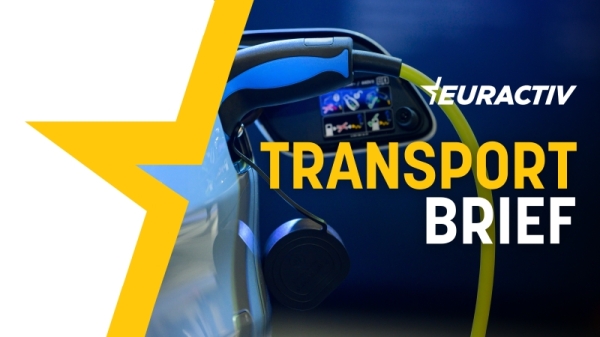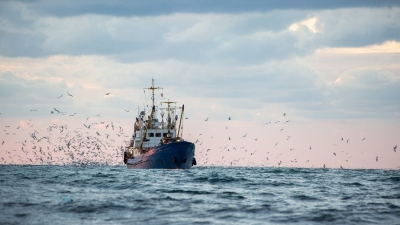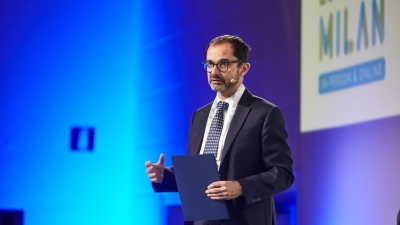Transport and the fight over Europe’s future

With European Parliament elections in June and a new European Commission expected soon thereafter, Brussels is busy discussing the key political themes that will shape the EU agenda for the remainder of the 2020s.
One question is being hotly debated: Are green policies an accelerator or a drag on economic growth?
Two recent German transport stories from Jonathan Packroff in Berlin neatly sum up the opposing perspectives that drive the debate.
On the one hand, liberal Transport Minister Volker Wissing raised the spectre that driving bans would be needed to meet climate targets. While many question whether this is really needed, the underlying perspective is that climate mitigation is a cost to be tolerated at best, and avoided if possible.
The same week the German car lobby’s chief grumbled about Commission President Ursula von der Leyen’s investigation into Chinese subsidies for electric cars. From this perspective, decarbonisation is an economic opportunity that must be seized and carefully managed.
While arguments cross party lines, it is primarily a debate within the centre-right European People’s Party. Members are split on whether to stick with or ditch the Green Deal – the flagship policy of their lead candidate Ursula von der Leyen.
Other parties are mulling over the same issues, but so far they have managed to more coherently marry climate and economic priorities.
Competition commissioner and liberal flagbearer Margrethe Vestager took the stage in the US last week to lay out her vision of how Europe can be a leader in green tech like electric vehicles – without provoking a trade war. Paul Messad has the story.
And Spanish socialist heavy-hitter Teresa Ribera pitched her vision of a ‘Green Deal 2.0’ in an exclusive interview with Euractiv.
Europe’s political system means that all three viewpoints will be represented in some way in the next Commission. How these perspectives are reconciled or resolved – and who wins or loses – will all play out over the coming months.
If it all sounds a little bit high-level, that’s because it is.
But make no mistake – the policies that the transport sector will face over the coming five years will depend on how these different visions collide.
Discover the future of mobility at VivaTech, Europe’s biggest startup and tech event, from May 22 to 25 in Paris!
Explore the most disruptive topics in tech with world-premiere launches and get a glimpse into the latest transport innovations. This is where business meets innovation.
Book your pass now on vivatech.com.

What you need to know this week:
EU ‘declaring war’ on energy sector methane emissions
The European Parliament adopted a pioneering new law to reduce methane emissions in the energy sector on Wednesday (10 April), but the oil and gas sector quickly pointed to potential implementation problems.
Europe’s new industrial climate spin takes shape
The Commission’s decision to open an anti-subsidy investigation against Chinese electric cars was not sufficiently coordinated with Berlin, the managing director of the German car industry association VDA said on Thursday (11 April), criticising von der Leyen’s solo effort.
EU Parliament adopts 90% phase-out of new diesel trucks by 2040
Average emissions of new trucks will have to be reduced by 90% by 2040, compared to 2019, the European Parliament decided on Wednesday (10 April), adopting a law that will drastically reduce the number of new diesel trucks.
EU Parliament approves deal on world’s first carbon removal certification scheme
The European Parliament voted yesterday (Wednesday, 10 April) in Brussels to approve a deal with national governments on a new carbon removal certification scheme.
Read more with Euractiv




